Filter by
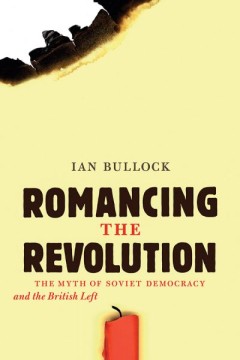
Romancing the Revolution The Myth of Soviet Democracy and the British Left
Romancing the Revolution uncovers the imprint of this myth on left-wing organizations and their publications, ranging from those that presented themselves as “British Bolsheviks”—the British Socialist party and The Call, the Socialist Labour party’s The Socialist, Sylvia Pankhurst’s Workers’ Dreadnought—to the much more equivocal Labour Leader and The New Statesmen.
- Edition
- -
- ISBN/ISSN
- 978-1-926836-13-3
- Collation
- -
- Series Title
- -
- Call Number
- 438 pages
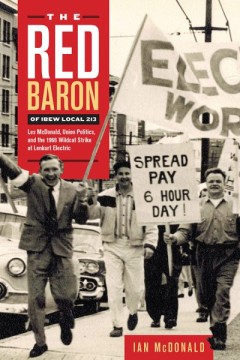
The Red Baron of IBEW Local 213 Les McDonald, Union Politics, and the 1966 W…
Referencing Local 213’s Minute Books, newspaper articles, collected correspondence, as well as dozens of personal interviews conducted by the author, this book examines the history of IBEW Local 213 in the turbulent years leading up to the Lenkurt strike. In addition to describing these events and their important historical ramifications, author Ian McDonald chronicles how his father helped t…
- Edition
- -
- ISBN/ISSN
- 9781771993487
- Collation
- -
- Series Title
- Working Canadians: Books from the CCLH
- Call Number
- -
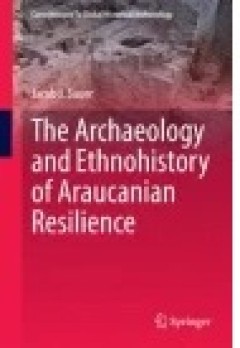
The Archaeology and Ethnohistory of Araucanian Resilience
This volume examines the processes and patterns of Araucanian cultural development and resistance to foreign influences and control through the combined study of historical and ethnographic records complemented by archaeological investigation in south-central Chile. This examination is done through the lens of Resilience Theory, which has the potential to offer an interpretive framework for ana…
- Edition
- -
- ISBN/ISSN
- -
- Collation
- XIII, 193
- Series Title
- Contributions To Global Historical Archaeology
- Call Number
- -
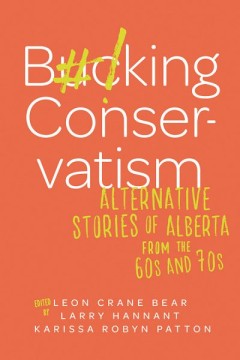
Bucking Conservatism Alternative Stories of Alberta from the 1960s and 1970s
With lively, informative contributions by both scholars and activists, Bucking Conservatism highlights the individuals and groups who challenged Alberta’s conservative status quo in the 1960s and 70s. Drawing on archival records, newspaper articles, police reports, and interviews, the contributors examine Alberta’s history through the eyes of Indigenous activists protesting discriminatory l…
- Edition
- -
- ISBN/ISSN
- 9781771992572.01
- Collation
- -
- Series Title
- -
- Call Number
- 368 pages
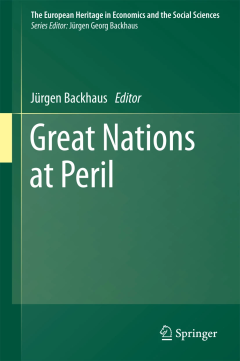
Great Nations at Peril
This book was prompted by the current, lingering financial crisis, which has its basis in the disorderly financial practices of the United States. These practices have resulted in an accumulated debt which now requires the United States to run financial policies at artificially low interest rates. In principle, these low interest rates should flood the markets with ready money. Since the spread…
- Edition
- -
- ISBN/ISSN
- 978-3-319-10054-8
- Collation
- VII, 172
- Series Title
- -
- Call Number
- 330 GRE
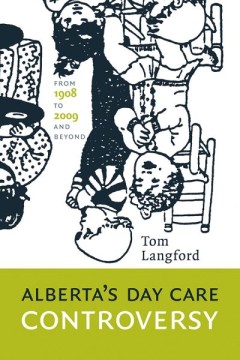
Alberta’s Day Care Controversy From 1908 to 2009 and Beyond
Day care in Alberta has had a remarkably durable history as a controversial issue. Since the late 1950s, disputes over day care programs, policies, and funding have been a recurring feature of political life in the province. Alberta’s Day Care Controversy traces the development of day care policies and programs in Alberta, with particular emphasis on policy decisions and program initiatives t…
- Edition
- -
- ISBN/ISSN
- 978-1-926836-02-7
- Collation
- -
- Series Title
- -
- Call Number
- 425 pages
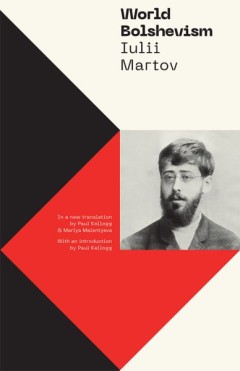
World Bolshevism
Following Martov’s untimely death in 1923, a Russian-language edition of one of his books, World Bolshevism, was published. But it was only in 2000, after decades of extreme censorship, that parts of the book were legally published in Russia. In English, this work has reached the public in pieces, often as a part of pamphlets with limited circulation. This edition, which includes an introduct…
- Edition
- -
- ISBN/ISSN
- 9781771992732.01
- Collation
- -
- Series Title
- -
- Call Number
- 194 pages

Working People in Alberta A History
Published on the occasion of the 100th anniversary of the Alberta Federation of Labour, Working People in Alberta contrasts the stories of workers who were union members and those who were not. In its depictions of union organizing drives, strikes, and working-class life in cities and towns, this lavishly illustrated volume creates a composite portrait of the men and women who have worked to bu…
- Edition
- -
- ISBN/ISSN
- 978-1-926836-58-4
- Collation
- -
- Series Title
- -
- Call Number
- 10.5 x 9, 359 pages

Workers’ Control on the Railroad A Practical Example “Right Under Your N…
The late “Lefty” Morgan, a British Columbia railway engineer, outlines his philosophy of workers’ control in this fascinating volume. The volume has a scholarly introduction by University of New Brunswick anthropologist, Gail Pool, and University of Toronto PhD student in anthropology, Donna Young. They situate Lefty politically and historically and locate Lefty’s work in current debate…
- Edition
- -
- ISBN/ISSN
- 0-9695835-4-0
- Collation
- -
- Series Title
- CCLH Publications
- Call Number
- -
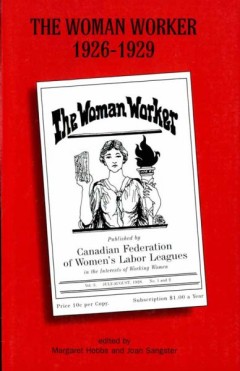
The Woman Worker 1926-1929
This volume presents the inaugural issue and articles from The Woman Worker, the official newspaper of the Canadian Federation of Women’s Labor Leagues, during its 1926 to 1929 run. Edited by prominent Communist Party of Canada leader Florence Custance, The Woman Worker’s objective was to “champion the Protection of Womanhood, and the cause of the Workers generally.” In this collection,…
- Edition
- -
- ISBN/ISSN
- 1-894000-01-3
- Collation
- -
- Series Title
- CCLH Publications
- Call Number
- -
 Computer Science, Information & General Works
Computer Science, Information & General Works  Philosophy & Psychology
Philosophy & Psychology  Religion
Religion  Social Sciences
Social Sciences  Language
Language  Pure Science
Pure Science  Applied Sciences
Applied Sciences  Art & Recreation
Art & Recreation  Literature
Literature  History & Geography
History & Geography